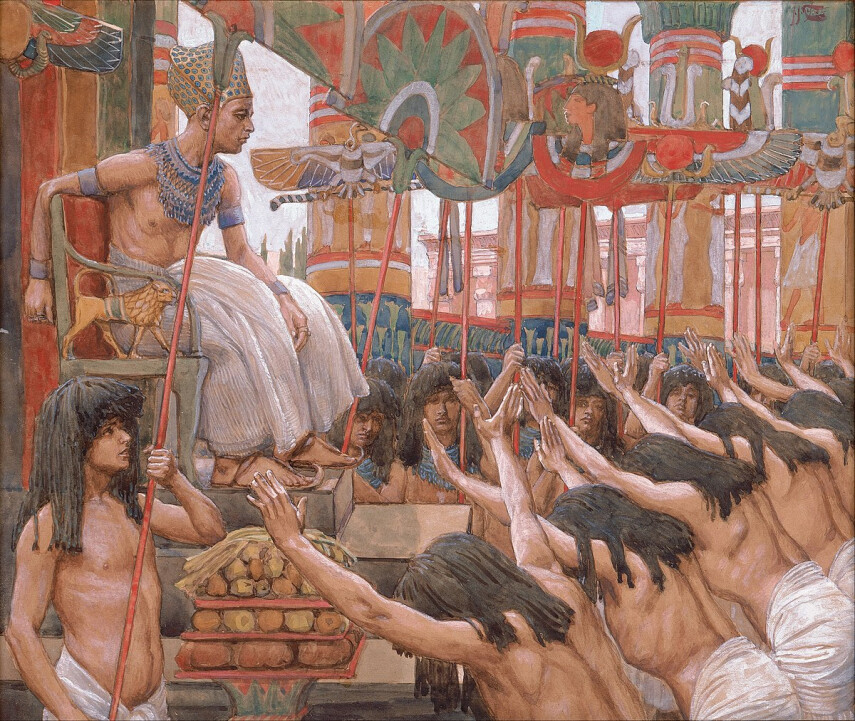The Bible is not pro-slavery

As a campus minister, one accusation I’d often hear regarding Christianity was the Bible’s endorsement of slavery. “Why would I ever follow a God that permits and teaches people how to do slavery well?” This simply is not - nor has it ever been true.
Both New and Old Testaments of the Bible clearly prohibit the abuse, trafficking, or exploitation of another human being. In Exodus we see the story of Moses coming to do no less than free a nation of slaves. Pharoah subjected an entire nation of people to dehumanizing abuse. This slavery was so extreme that the people cried out to God for salvation. God of course heard their cries and sent an emancipator.
Accusatory questions continue: “So, if slavery was so bad, why wouldn’t God prohibit it in the commandments? Would an eleventh commandment of not owning slaves be appropriate? Afterall, everyone listening to Moses as he carried the tablets down the mountain was very recently a slave.”
Actually, God does have stern words regarding slavery. In Exodus 21.16, God says that “whoever steals a man and sells him, and anyone found in possession of him, shall be put to death.” If you were caught abducting, selling, or owning another human - the penalty was death. God couldn’t be more clear.
Slavery existed long before Exodus was written - and still exists to this day - and God is no less serious about it. So if God values life, and reserves the death penalty for stealing and enslaving other humans, how were people able to acquire slaves in the Bible? And why does the Bible instruct on how to care for slaves? Is the Bible pro-slavery? These are all valid questions?
Andy Judd, a professor at Ridley College in Melbourne does a fantastic job of bifurcating the two main origin points of slavery in the Bible; debt/bankruptcy, and abduction.
“Say you went bankrupt and you’d already sold the farm. Your options at this point were simple: you and your children could starve to death, or you use the only thing you had left (your labour) to pay off your debt and try to get back on your feet. Under this kind of arrangement you would voluntarily and temporarily become part of someone else’s family business, working alongside them and their children for a limited period of time to pay off your debt.”
This is so culturally distant from where we are today that it’s a bit hard for us to imagine, but it really shouldn’t be. These Biblical days were far more savage than what we experience today, and life could come down to “work-or-die” scenarios. Today we can get credit, change jobs, use GoFundMe, declare bankruptcy, etc… In fact, we do enslave ourselves to credit cards, oppressive mortgages, and student loans. We sell our labor and even gain side-hustles to pay them off. So, when we stand back and squint our eyes, we aren’t too far off from debt-bondage ourselves. You might be free, but not free enough to stop making payments.
So back to the original issue: Why are there so many instructions to interacting with slaves if God prohibits it?
According to Judd, God “made some concessions to ameliorate an imperfect reality: the slave trade was death penalty material, but for now you could still do bankruptcy-slavery.” Bankruptcy-slavery isn’t even close to the trans-Atlantic slave trade our country took part in. Bankruptcy-slavery had rights - barely suited for the cultural baggage we apply to the word “slavery” today.
Again, Judd notes, “as a Hebrew bankruptcy slave you kept your rights and dignity even while you worked temporarily for someone else:
- You could bring lawsuits against your master for mistreatment (other ancient law codes allowed masters to sue other people for harming their slaves, but nobody else let slaves take their masters to court!).
- Your master owned your time and labour but not your body (if they damaged even one tooth of your body you walked free immediately).
- Your master owned your time and labour but not your soul. You had the right to a religious life, including a day off for the Sabbath, and you retained your identity and protection as part of your family and broader community.
- Israelite towns were commanded to give refuge to runaway slaves … if you didn’t like the way you were being treated you could simply walk to the next town…In any sane slave-owning society, escaped slaves would be punished severely and returned to their masters… But in Israel, if you didn’t like the way you were being treated you could simply walk to the next town and they would be obliged to protect you…
So again, if slavery was voluntary, time-bound, and allowed one to slip from one town to another upon mistreatment, are you really a slave as we understand the word today? No. God made deep provision for those who were financially in contract to pay themselves out of bankruptcy.
So, are the passages in the Bible instructing slave-holders a compromise? Judd says yes. “On the one hand, God accepts that for the time being there will be some forms of slavery within Israel—and gives judgments that reflect that fact and try to limit its worst excesses. At the same time, God’s laws lock in the destination of the total abolition of slavery. They make crystal clear that, while you can buy someone’s time and labour, you can never own another human being.”
We see similar compromise in the realm of divorce, as Jesus says, “Moses permitted you to divorce your wives because your hearts were hard” (Matthew 19.8). God hates divorce, but made provisions for women in horrible situations. Experts in Jewish law knew how to “game the system” in divorce and damage women, so God made a concession for the sake of women. The divorce option that God granted the Israelites testifies to man's sinfulness.
When I read the Bible, I kind of wish Paul or Moses would have spoken directly to all slavery forms from an abolitionist position. That seems to make sense to me, but the laws handed to us in God’s words are not just for us to shape a utopia, but a revelation of what justice looks like embedded in a corrupt and unrighteous system.
Eventually, Christianity destroyed abduction-slavery (and still strives to do so), but it all began back in Exodus as we see God’s heart towards those who cry out for freedom. The reason our hearts crack when we think of slavery is because God encoded such feelings in us all. We all understand that mankind is in the treasured image of God, even if we deny God. Our hearts are also crafted to long for total emancipation from the heart’s slavery to disobedience. Jesus came to free a larger nation from slavery.
So next time you hear that God is pro-slave trade, it comes from a place of misunderstanding the scripture, God’s heart, and even the role of the law’s entrance into messy and corrupted times. God is not okay with destroying the integrity and life of people based on race.

